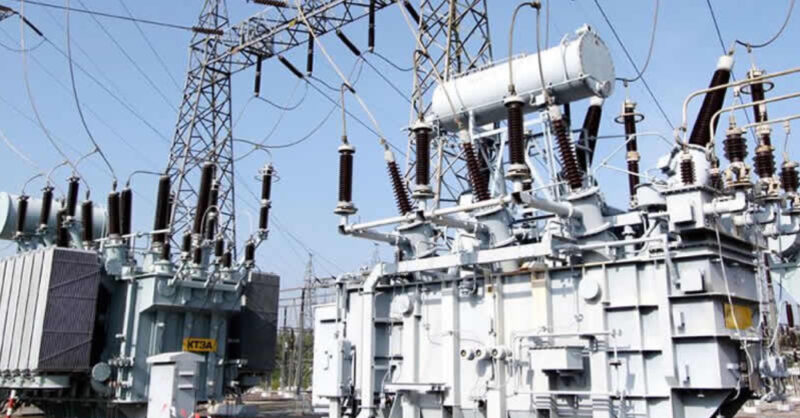Nigeria Aims for 20 Hours of Daily Electricity by 2027 with Increased Investment in Oil and Gas Sector
Cape Town, South Africa – The Nigerian Federal Government has announced an ambitious plan to provide citizens with at least 20 hours of electricity per day by 2027. However, achieving this goal hinges on attracting substantial investments to bolster the nation’s oil and gas sector, which officials deem critically underfunded.
Olu Verheijen, the Special Adviser to the President on Energy, shared these insights during the recent Energy Week held in Cape Town, South Africa. The statement was disseminated by the State House’s Director of Information and Publicity, Abiodun Oladunjoye, on Thursday.
“By 2027, we intend to ensure consumers, particularly in urban environments and industrial centers, benefit from 20 hours of daily electricity,” Verheijen remarked. The announcement comes in the wake of ongoing challenges faced by Nigeria’s power sector, including the frequent collapse of the national power grid. Notably, the grid experienced a failure on Tuesday, marking the tenth such incident in 2024 alone, which the government attributes to aging infrastructure, inadequate maintenance, and a lack of investment.
Despite having an installed capacity nearing 12,500 megawatts, Nigeria often generates only a fraction of this potential, leaving many communities without reliable electricity options.
During her address at Energy Week, Verheijen outlined the Tinubu administration’s efforts to revitalize Nigeria’s power sector. Plans are in place to extend reliable electricity access to the 86 million Nigerians who remain underserved, with a focus on improving revenue assurance and collection. The administration aims to address legacy debts, deploy seven million smart meters to curb losses, and expand off-grid solutions for remote areas.
Verheijen emphasized the importance of recent macroeconomic reforms, including the elimination of the petrol subsidy and the liberalization of the foreign exchange market, expressing optimism that Nigeria is on the brink of significant economic growth. She extended an invitation to global players to partake in Nigeria’s forthcoming economic developments.
Discussing the reforms aimed at stimulating investment, Verheijen highlighted Nigeria’s disappointing track record in oil and gas production despite abundant resources. She compared Nigeria’s output to Brazil, which possesses only 30% of Nigeria’s oil reserves but produces 131% more oil.
“Despite our ample resources, we have fallen short of our potential. For instance, Brazil produces significantly more oil with a fraction of our reserves, primarily due to the lack of investment in our sector,” she explained.
Verheijen pointed out that since 2016, Nigeria has attracted merely 4% of the total investments in Africa’s oil and gas industry, while other, less resource-rich nations have reaped larger shares of those investments. “An analysis of investment trends reveals that International Oil Companies (IOCs) have committed over $82 billion to deepwater projects in more attractive countries since Nigeria’s last major project reached Final Investment Decision (FID) in 2013,” she noted.
Acknowledging the need for change, Verheijen highlighted the Tinubu administration’s reforms aimed at transforming Nigeria’s investment climate. She described the introduction of fiscal incentives for deep offshore and non-associated gas projects as a significant milestone, marking the first time Nigeria has laid out a fiscal framework for deepwater gas since explorations began in 1991.
In collaboration with the National Security Adviser, her office has also worked to create targeted security protocols to protect investments in the sector. Efforts are underway to simplify regulatory procedures, aiming to reduce the historically lengthy project timelines and curtail the high operating costs in Nigeria.
“Our goal is to decrease project contracting timelines from an extensive 38 months to just 135 days, while also addressing the current 40% cost premium in the petroleum industry,” she remarked.
Verheijen also highlighted the administration’s initiatives to open the oil and gas sector to more extensive investments, including clear fiscal incentives for non-associated gas and deep offshore exploration projects. She noted ongoing investments geared toward midstream and downstream sectors, such as compressed natural gas and liquefied petroleum gas.
These efforts align with the broader Presidential Gas for Growth Initiative, which seeks to reduce reliance on premium motor spirit (PMS) and diesel in heavy transportation, decentralized power generation, and cooking, while also stimulating demand for electric vehicles.
Verheijen disclosed that the government has successfully unlocked over $1 billion across the energy value chain, with two more significant investment projects anticipated by mid-2025. Moreover, she indicated efforts to facilitate the transfer of onshore and shallow water assets to local entities, enabling them to enhance production while ensuring a smooth transition for International Oil Companies into deep offshore and integrated gas operations.
“We have already unlocked over $1 billion in investments across the sector, and we expect Final Investment Decisions on two additional projects, including a multibillion-dollar deepwater exploration initiative, by mid-2025. This will mark the first such project in Nigeria in over a decade, with many more to follow,” Verheijen concluded.










Join our Channel...